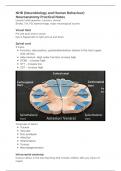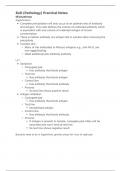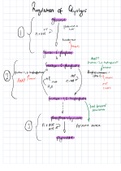Medicine (A100)
Cambridge University (CAM)
Here are the best resources to pass Medicine (A100). Find Medicine (A100) study guides, notes, assignments, and much more.
Page 3 out of 60 results
Sort by:
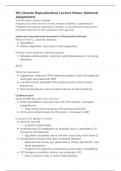
-
Lecture notes
HR (Human Reproduction) Maternal Adaptations
-
--3June 20232022/2023Available in bundle
- University of Cambridge (Medicine 1st class): Summary of key points of HR (Human Reproduction) Maternal Adaptations lecture for 2nd year.
-
£3.49 More Info
 rokesharumugam
rokesharumugam
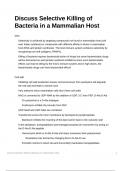
-
Summary
MoDA (Pharmacology) Discuss selective killing of bacteria in a mammalian host - Essay Plan
-
---3July 20232022/2023
- University of Cambridge (Medicine 1st class): Essay plan for 'Discuss selective killing of bacteria in a mammalian host' of MoDA (Mechanisms of Drug Action) for 2nd year.
-
£3.49 More Info
 rokesharumugam
rokesharumugam
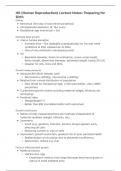
-
Lecture notes
HR (Human Reproduction) Preparation for Birth and Delivery
-
--5June 20232022/2023Available in bundle
- University of Cambridge (Medicine 1st class): Summary of key points of HR (Human Reproduction) Preparation for Birth and Delivery lectures for 2nd year.
-
£3.49 More Info
 rokesharumugam
rokesharumugam
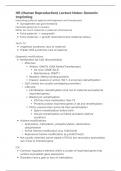
-
Lecture notes
HR (Human Reproduction) Genomic Imprinting
-
--2June 20232022/2023Available in bundle
- University of Cambridge (Medicine 1st class): Summary of key points of HR (Human Reproduction) Genomic Imprinting lecture for 2nd year.
-
£3.49 More Info
 rokesharumugam
rokesharumugam

-
Summary
BoD (Biology of Disease, Pathology) Bacteria Identification Flowchart
-
--1July 20232022/2023Available in bundle
- University of Cambridge (Medicine 1st class): Flowchart for identifying bacteria based on gram-stain, shape, aerobics, etc for BoD (Biology of Disease) practicals for 2nd year.
-
£3.49 More Info
 rokesharumugam
rokesharumugam
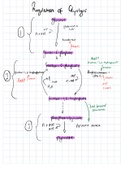
-
Summary
Need help understanding how different metabolic pathways work?
-
---7December 20222021/2022
- Clear and concise diagrams that show all of the ways in which metabolic processes such as Glycolysis, the Krebs / TCA cycle, gluconeogenesis, fatty acid metabolism / synthesis and amino acid metabolism are all regulated. All of the diagrams shows the ways in which these processes are activated and inhibited and are easy to follow while not skipping on any details.
-
£5.49 More Info
mikeshpatel
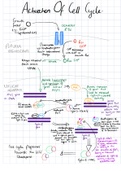
-
Summary
Need help understanding the cell cycle and its inner workings, this diagram has all the information you need
-
---3December 20222021/2022
- Diagrams showing the inner workings of the cell cycle and how different factors influence its rate of progression. Using a flowchart, these diagrams show all of the details of the cell cycle in a more digestible manner so you can get a better understanding of this topic
-
£5.49 More Info
mikeshpatel

